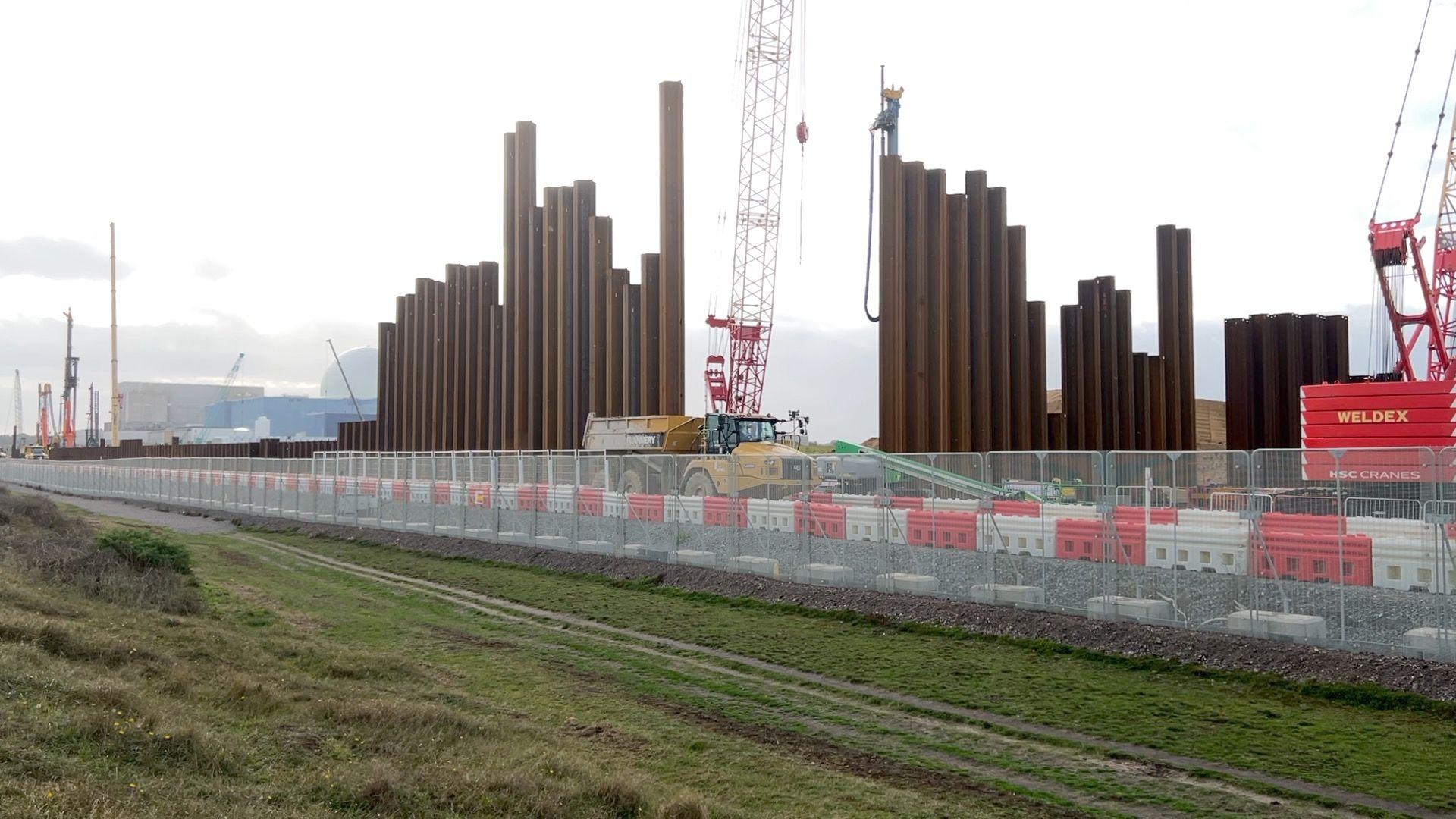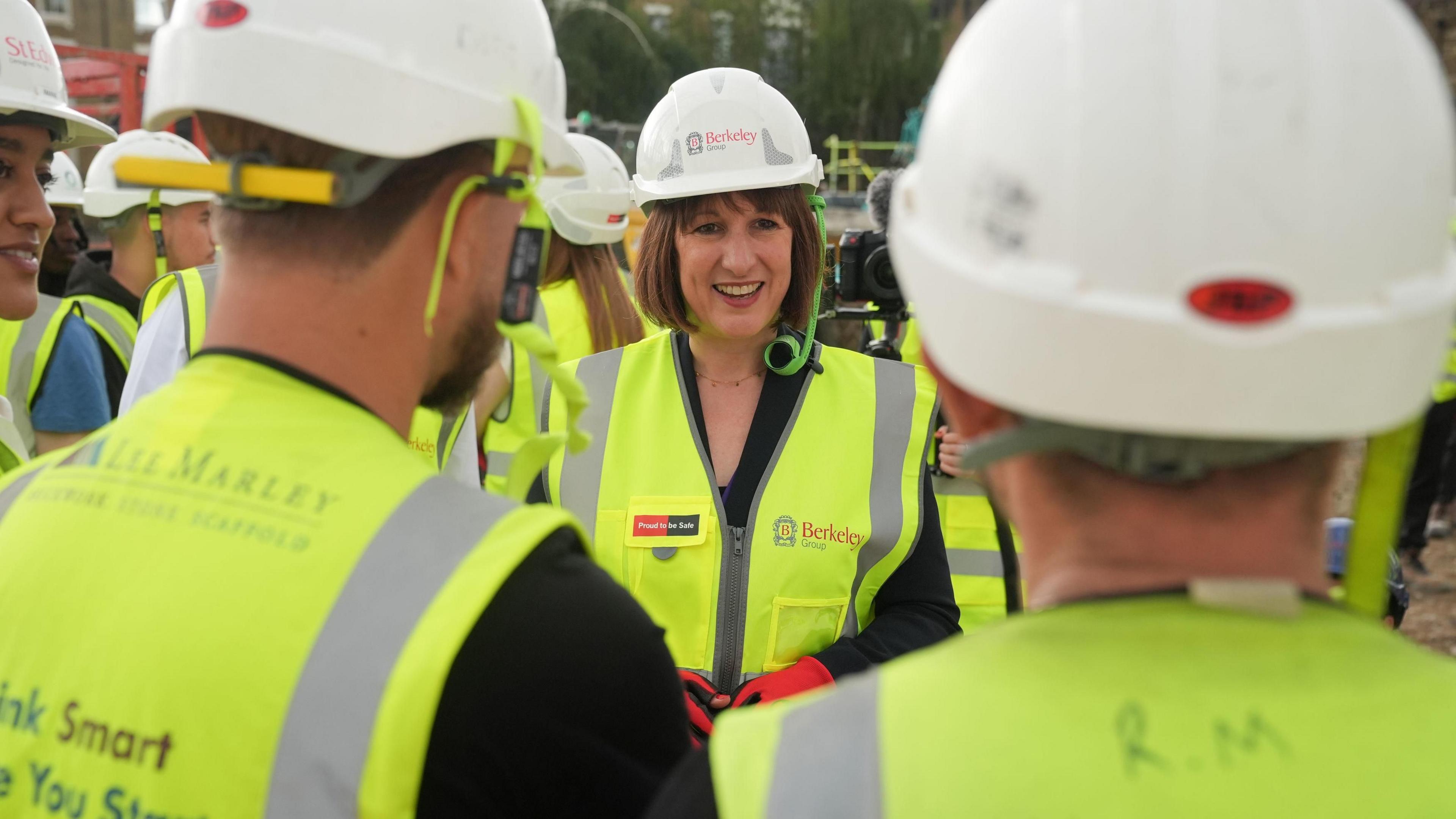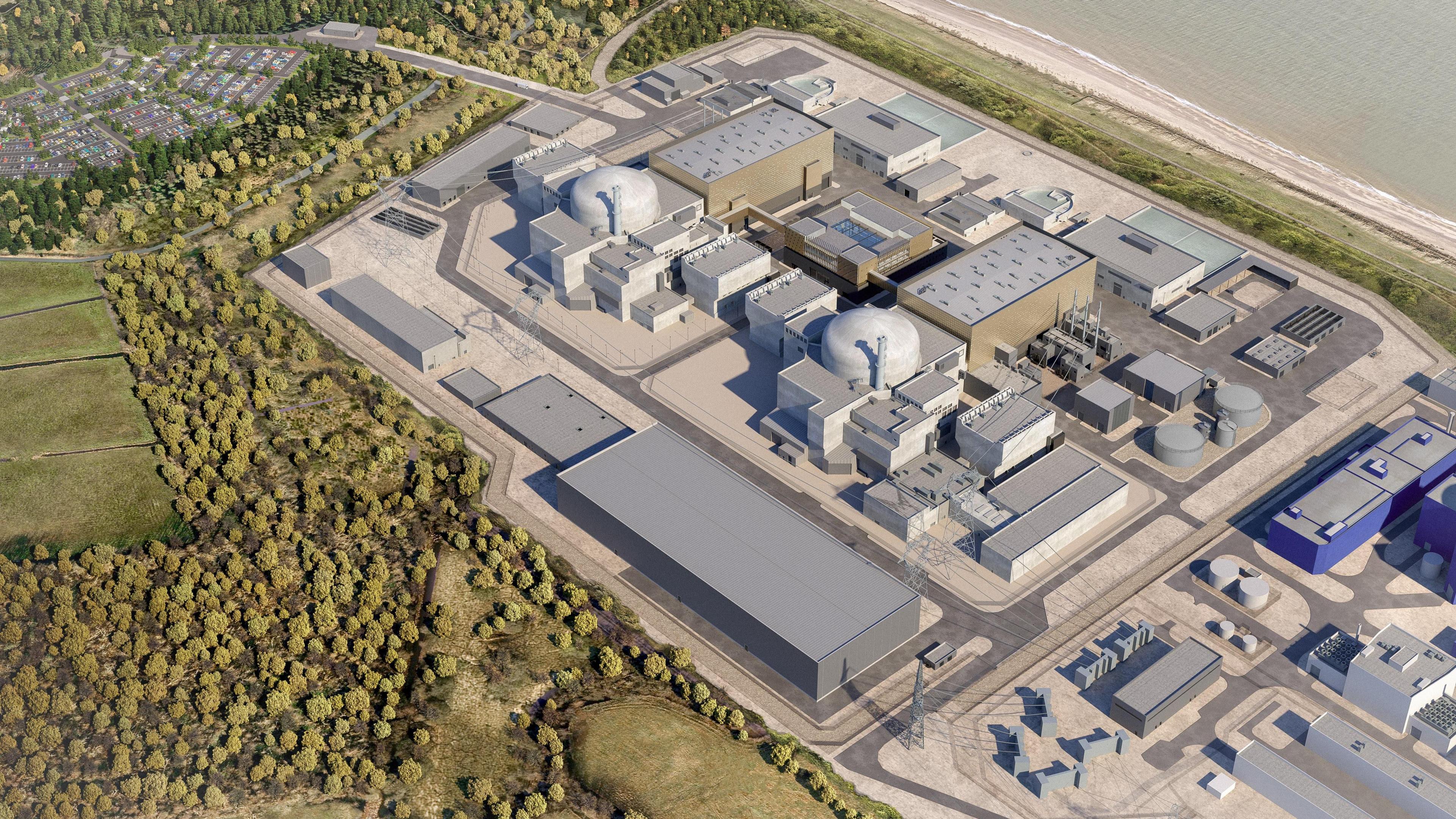'Historic underinvestment' holding back region

The East of England would receive an extra £10bn a year from Whitehall if funded properly, the report says
- Published
The East of England's economic potential is still being held back by historic underinvestment, poor infrastructure and communications, according to a major new report.
The report by local MPs, council leaders and chambers of commerce, warns that unless long-standing problems are urgently addressed, there is the risk of delays to projects like East West Rail, Sizewell C and the building of thousands of homes.
It says if the government funded the East at the same level as the rest of the country, the region would receive an extra £10bn a year from Whitehall.
The Treasury said it had already announced billions of pounds in infrastructure investment, but accepted there was more to be done.
The region in numbers
The report contains new facts and figures about the region's economy:
It has the fastest growing population in UK
It has an employment rate of 78.6% - one of highest in the country
The local economy has grown by 57% since 1992 - 12 points ahead of the UK average
People undertake 163 million train journeys a year - the third highest in country
Half of the UK's container freight passes through the ports of Felixstowe, Harwich and Thames Freeport

Sizewell C power plant, on the Suffolk coast, is one of the major projects planned in the East of England
The document says the region plays a vital role in the UK economy. A fifth of all business investment in the UK (£12.7bn) is made in the East - the highest of any region, excluding London.
The region has more than 3,200 life sciences businesses and will soon provide enough energy to power a third of the UK's homes.
It is also one of the largest contributors to the Treasury in tax.
The report says the region's economic resilience, along with recent decisions to start Sizewell C, build the Universal Theme Park in Bedfordshire and continue with East West Rail provide big opportunities to grow, but it warns that growth could be put at risk unless long-standing challenges are addressed.
The challenges
The report contains a number of challenges, but lists the main ones as:
Poor transport links
Poor connectivity
Skills shortages
Housing availability and affordability
Water scarcity
Like many reports before it, "historic underinvestment" in transport and communications is blamed for holding back the region's growth.
It criticises the decision not to fund the improvement of Ely and Haughley rail junctions, and the recent decisions to cancel major road improvement schemes on the A12 and A47.

For 25 years, campaigners have argued that improving Ely North junction would make it possible to run more freight and passenger services
It calls for more investment in bus services, particularly in rural areas, and for the rollout of 5G to be speeded up.
It says without new reservoirs, the region will face a potential shortfall of 800 million litres a day of usable water by 2050. The government recently announced plans to build a new reservoir in the Fens, but the report says more needs to be done.
There is also a call to do more to make apprenticeships and skills training more attractive to young people.
The main problem is funding. The report notes that when it comes to government spending, the East receives just over £15,000 per head, which alongside the East Midlands is the lowest in the country.
It says that if government funding matched the national per head average, the East would get an extra £10bn every year.
'Huge potential'
Andrew Pakes, the Labour MP for Peterborough and chair of the East of England Skills Delivery Group, said: "There is huge potential in the East, whether that's in clean energy, engineering, defence or agriculture, but whilst we've had a good start from the government we need more support so we can get the job done on behalf of the country and our residents."
Steff Aquarone, Liberal Democrat MP for North Norfolk, said: "Rural communities like mine have already shown what they can do when it comes to growing the economy but there is so much more, from our green energy sector in Bacton to world-leading clean tech at the Scottow Enterprise Park.
"Our rural communities in the East of England are teeming with untapped potential."
James Wild, the Conservative MP for North West Norfolk, added: "If the government chose to fund key projects such as Ely Junction, dualling the A47, and improving digital connectivity, there is the potential to boost key sectors.
"So far the Chancellor has fallen short, but as she looks for opportunities to boost the economy, she should increase public investment so the East gets its fair share."
When she announced the date for her budget the chancellor Rachel Reeves said: "We've got huge potential - world leading brands, dynamic industries, brilliant universities, and a skilled workforce. We're a global hub for trade.
"Fixing the foundations has been my mission this past year. We raised the minimum wage for three million people, started tearing up planning rules to build 1.5 million new homes (and )promised billions more for the country's infrastructure.
"But I'm not satisfied. There's more to do."
Get in touch
Do you have a story suggestion for the East of England?
Follow East of England news on X, external, Instagram, external and Facebook: BBC Beds, Herts & Bucks, external, BBC Cambridgeshire, external, BBC Essex, external, BBC Norfolk, external, BBC Northamptonshire, external or BBC Suffolk, external.
Related topics
You may also be interested in
- Published14 March

- Published14 July 2024

